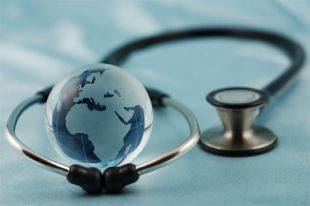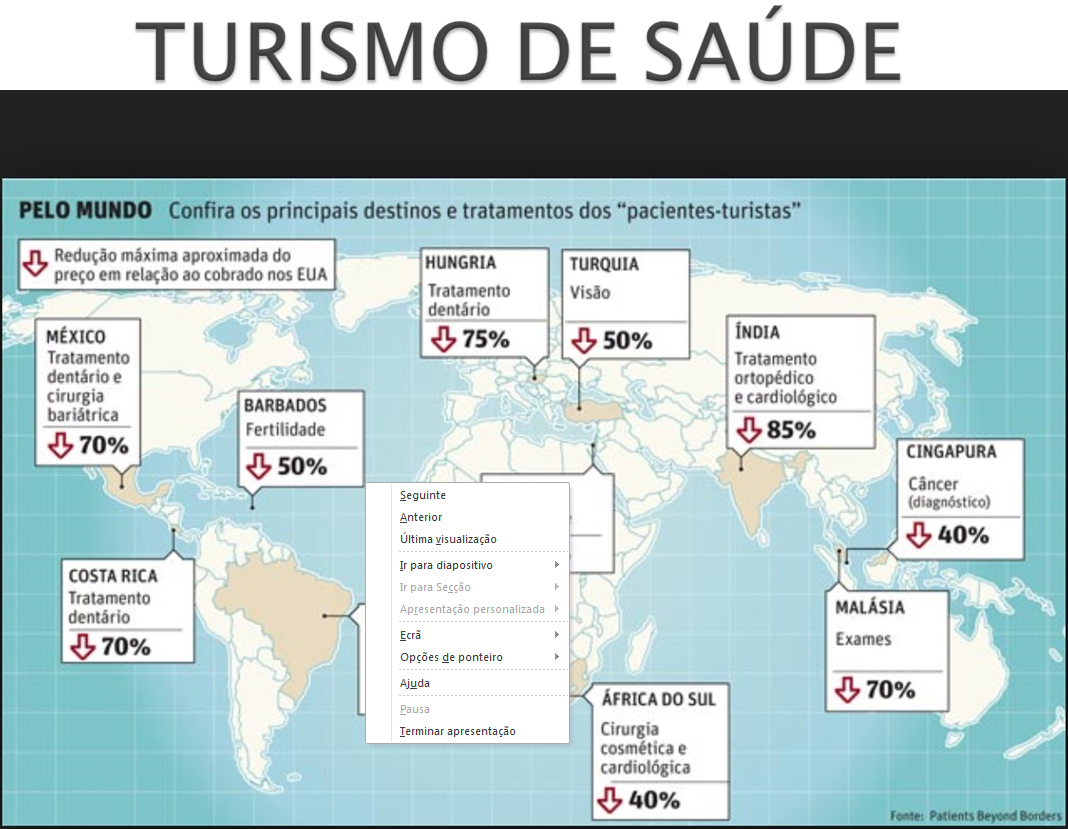
The reasons to bet on health tourism
Ambição com os pés assentes no chão. Pode-se resumir assim a meta que Cabo Verde deve ter para a área do turismo de saúde, segundo a opinião do médico José Maria Martins. No fundo, falamos de um negócio que providencia terapêuticas, tratamentos, diagnósticos e cirurgias a preços mais baixos dos praticados nos países mais avançados, mas com os mesmos padrões de qualidade. Um mercado que, prevê-se, movimente 100 biliões de dólares nos próximos anos.
Health can be the engine of economic development in a country. That’s what doctor José Maria Martins explained at the Sal Compromise Conference. The term health tourism is new, but the idea is thousands of years old. “Now the Romans and the Greeks made trips to the baths. It was always done. Right now, there are countries in the world that specialize in this area. ” Says the surgeon to the Islands Express.
In Europe, Latin America, Asia and Africa, there are nations offering different services, at lower prices than those in more advanced countries, but with the same quality standard. In Mexico, for example, dental and aesthetic surgery is practiced for values between 25 and 35 percent of what would be paid in the United States of America. In Costa Rica it happens the same or in Brazil where cosmetic surgery costs less than half that in the USA. Singapore specializes in the diagnosis of cancers, Thailand and Malaysia offer alternative therapies, such as Thalassotherapy [treatment by seawater and marine elements], and South Africa has specialized fertility centers in Cape Town.
And Cape Verde? To begin with, as the doctor José Maria Martins points out, it has the privileged location to receive patients from Europe and the Americas. Then there is the weather, the beaches and the sun. It is now necessary to take the necessary steps to get into this 100 billion dollar market. Getting a slice of 0.1 percent, as the doctor says, “would be extraordinary.”
“I’ll give you an example,” says Jose Maria Martins to the Islands Express, “the United States of America paid $ 16 billion for people to be operated out, mainly in India, cardiac surgeries. And insurance companies prefer so, in the US they would pay $ 150,000 per intervention, in India they pay $ 15,000. Of course the training of Indian doctors is very high and there are centers with extraordinary conditions, internationally accredited. ”
“India also succeeded because its best doctors, who lived in America or England, were able to return. If they go to India, they would surely come to Cape Verde. The Beach is the easternmost capital of Washington. A patient going to surgery in India on the return flight has a greater risk of thrombosis because of flight time. ”
Of course, you can not think of flights that are so high for the archipelago that involve complex surgeries, which is not to say that there are no other areas where you could start. “There may be people who come to lose weight, or come to check up, or a sequence of treatments, for example, an athlete who is operated on and needs physical therapy, nothing like physiotherapy in a center in good weather, with sun, etc. And there is one area that I advocate is hemodialysis. “

According to specialists, 12 patients already have a unit of hemodialysis, a treatment that can even be done individually, including at home. “Europe has increased life expectancy by another eight years, people at 60 years old increase the risk of hemodialysis, so there are people who, knowing that there is a referenced center in the world, 4 or 5 hours away, may come spend a month, two, or more on vacation, in the second year until you can already acquire a second residence. I think hemodialysis could be an extraordinary way out. ”
Before you can move to any project, and become part of Patients Beyond Borders the guide that guides health services around the world, international accreditation is required. There are three bodies that pass it: the Joint Commission International (JCI), the Canadian Council of Health Service Accreditation and the United Kingdom Acreditation. Just to give an example, the Persian Gulf countries have thirty-eight JCI accreditations, 17 of them only in Saudi Arabia.
“In order to get accreditation there has to be economic diplomacy. The State, when it leaves, has to take concrete offers. The state has to dynamise, do not have to exploit, the state has to promote the country and then let private entities work. We offer these paradisiac islands, we have the sun, the beaches, the sea, and then we also have these services. ”
“The fundamental step is accreditation,” reinforces José Maria Martins, “and for that we need to know what is required for the service. We have to know what barriers we have to overcome and we have to plan. How much time do I need? 3 years? Five? Ten? Do we need to train how many doctors? The important thing is to start, thinking high with your feet on the ground and see what is required for accreditation. ”
“Nature has already helped us, now we have to do something,” concludes the Cape Verdean doctor.
